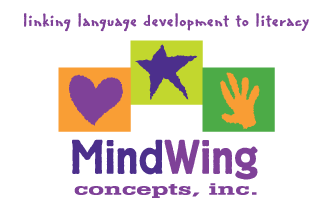Secure Checkout + FREE SHIPPING (U.S. Orders over $60)
Menu
-
- Home
-
About Us
-
The Approach
-
Linking Language & Literacy
-
Professional Learning
-
Learning Resources
-
SHOP
-
Blog
-
- About MindWing
- Our People
- Contact Us
- Your Account
- Login
-
United States (USD $)

Secure Checkout + FREE SHIPPING (U.S. Orders over $60)
You (as a character) Are A Social Detective!
by Sean Sweeney May 04, 2012 3 min read
On the heels of Autism Awareness Month, I wanted to highlight a product that provides a terrific complement to use of the Story Grammar Marker® for treatment of social learning and narrative deficits for students with autism spectrum and related disorders. You Are a Social Detective is a CD-ROM product (compatible with Mac and Windows systems) created by Michelle Garcia Winner of Social Thinking® in conjunction with the folks at Social Skill Builders. The program is based on the popular comic of the same name, which provides a visual primer on basic social thinking concepts such as expected and unexpected behaviors and their effects on others, “thinking with the eyes,” and making “smart vs. wacky” guesses. Many children on the autism spectrum require explicit and consistent teaching of these concepts and coaching in their application across the school day. Using this video modeling program allows for instruction across many leveled lessons, as students view video situations and apply the key skills to identify expected and unexpected behaviors, zoom in on clues about others’ thoughts and feelings, predict the outcome of social scenarios, and utilize social behavior mapping strategies.
I have been using this program with groups of students over the course of this year, and I have been impressed by both the amount of content provided (allowing students to build skills over many exposures) and students’ positive response to the material across a range of age levels. The engaging interface has really grabbed students’ attention, and I continually hear as my groups begin, “Are we going to do Social Detective today?” The pace of the program is arranged perfectly so that 3 or 4 video clips and accompanying discussion questions can be tackled in one session, followed by a brief interactive arcade-style game, and still allow for another activity in the course of your 30-minute session (the program saves student groups’ progress within the levels so that you need not repeat video clips). The structure of the program also allows plenty of room for clinical scaffolding; this is not an activity that students are meant to complete independently. Rather, they will need your assistance as a clinician to focus on key details within each scene and verbalize what has occurred (and what might occur next) thought their “Social Detective” lens.

One key tool that can be applied to analyze each video scene is, of course, Story Grammar Marker! Each scene presents kid characters (though they vary in age and, notably, so do the expected behaviors for different age levels) who are in different settings and experience a kickoff! As the program progresses, you move from deciding if the portrayed reaction was expected or unexpected for the situation, to making smart guesses about reactions, plans, and the feelings of the characters. I find each video clip to be an excellent place to employ the Universal Magnet Set to teach and reinforce use of the narrative icons toward the analysis of each scene, like so:

This serves as a great complement to the material provided, and does not end up being repetitive of the questions asked within the program. Rather, use of the narrative icons provides an additional visual and language-based support to help students understand what they saw, while building narrative skills and use of the cohesive ties that link the narrative icons: when, but, so, because, etc. The lessons in You are a Social Detective also, naturally, align well with the activities in the MindWing Autism Collection that apply narrative elements toward understanding social interactions.
A demo of this program can be viewed here (Flash-based, so not iPad friendly). ---NOT AVAILABLE CURRENTLY --- I hope you'll check out this great product.
Sean Sweeney
Sean Sweeney, MS, MEd, CCC-SLP, is a speech-language pathologist and technology specialist working in private practice at the Ely Center in Needham, MA, and as a clinical supervisor at Boston University. He consults with local and national organizations on technology integration in speech and language interventions. His blog, SpeechTechie (www.speechtechie.com), looks at technology “through a language lens.” Contact him at sean@speechtechie.com.
Leave a comment.
Comments will be approved before showing up.
